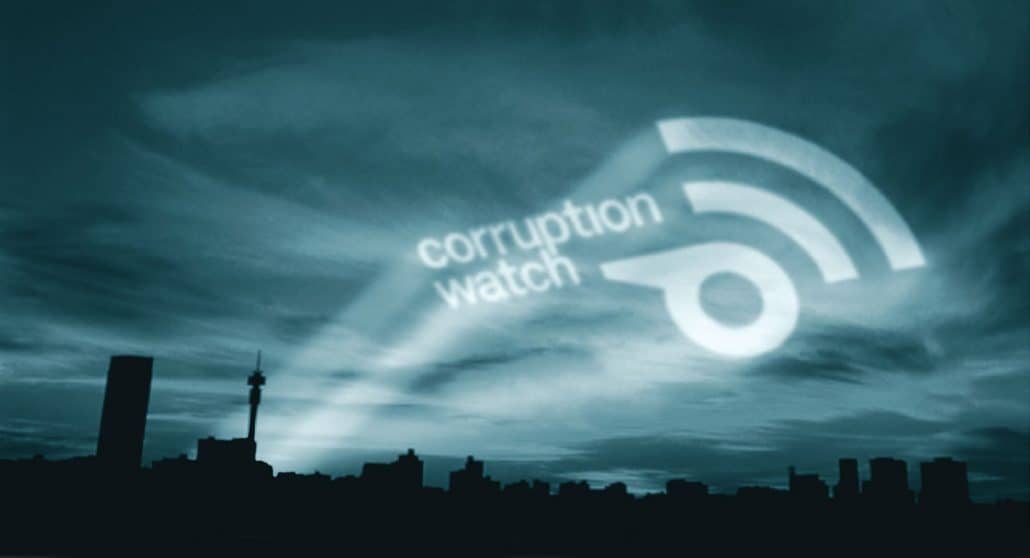Corruption Watch released its Transparency in Corporate Reporting: South Africa (TRAC) report yesterday evening. This report is part of Transparency International’s (TI) series that assesses the transparency – an essential tool in combating corruption and enabling accountability – of companies in various countries.
In the series, TI surveys the world’s largest companies in terms of publicly available information on those companies in three different areas related to corporate reporting: anti-corruption programmes, organisational transparency and country-by-country reporting. Corruption Watch, as the local TI chapter, conducted the South African study.
“This report is about a very visible form of best practice – the aspects of a company’s business which it shares with the public,” said Corruption Watch’s executive director David Lewis at the launch. “It’s important for us that a company communicates its stance on and actions against corruption.”
Lewis added that the report makes no comment on the details of companies’ anti-corruption programmes – it’s concerned only with the quality of public reporting and the fact that there is public communication by companies on this issue.
The assumption is that easily accessible public reporting is evidence of true commitment to addressing corruption and being accountable to the public. The transparency performance of companies in relation to the three categories is then compiled and ranked. The information is shared with the company, which then has a chance to respond to and act on it.
“The report shows that there is certainly a degree of commitment on the part of South African companies to transparency, but much more needs to be done,” said Lewis. “Just as the public demand that the public sector be accountable, so too are they entitled to expect this from the private sector. After all it is the public who invest and work in these companies, and who consume their products. We are all company stakeholders and are entitled to demand that they account to us.”
Download the TRAC report: South Africa for more information about the methodology, questions asked, and detailed company scores.
Mining companies performed best
Thirty-six top companies listed on the Johannesburg stock exchange, JSE Limited, as well as 14 of South Africa’s largest unlisted companies came under the spotlight. They were informed of the survey at the outset, although, given that the research relied on information in the public domain, company permission to embark on the research was not necessary, nor was it sought.
The methodology involved scrutinising company websites for information about their anti-corruption programmes, their organisational transparency and their operations around the world, referred to as country-by-country reporting.
The report revealed that South Africa’s most transparent companies came from the mining sector, with Gold Fields, BHP Billiton and Anglo American Platinum coming out tops among the listed companies. The three scored 9.6, 9.4 and 8.8 respectively, on a scale of 0 to 10, where 0 is least transparent and 10 is most transparent. Medical services providers Netcare and Mediclinic made up the rest of the top five, with scores of 8.2 and 7.6 respectively.
Hollard, with 8.2, topped the unlisted companies.
On the subject of anti-corruption programmes, the average score was 56%, with an average of 76% for listed companies. Six companies scored 100% – they are BHP Billiton, FirstRand, Glencore, Gold Fields, SABMiller and Vodacom Group. Unlisted companies are not mandated to report on specified issues pertinent to ethical business practices, meaning that some unlisted companies did not score well because of this and the pattern was repeated in the other categories.
The findings in this category showed that only 17 companies publicly prohibited facilitation payments. Also, many did not publicly assure whistleblowers that they would be protected by the company. “Protection of whistleblowers did not emerge as a key priority for most companies,” said Corruption Watch’s head of research Liezemarie Johannes, presenting the report.
Organisational transparency was relatively uneven across sectors, with an average score of only 49%. Three companies scored 100% – Anglo American, Hollard and Woolworths Holdings. This category is important, among other reasons, because company structures, such as offshore investments, can be made deliberately opaque to hide the proceeds of corruption. “Not all companies disclosed country of incorporation versus country of operation,” said Johannes.
While Gold Fields again scored 100% in terms of country-by-country reporting, it was in this category that the lowest scores generally were recorded, with an average of just 15%. This section involves a focus on revenues, tax contributions and social investment commitments. Country-by-country reporting provides investors with more comprehensive financial information about companies and helps them assess their investment risk more effectively.
While South African regulation does not require listed or unlisted companies to disclose this information, there is a move internationally towards greater transparency about the impact of companies doing business across multiple jurisdictions. In the UK, for instance, these disclosures are now mandatory. Although it remains low, it is encouraging to see that some companies have already taken heed of the changing environment and made this information publicly available.

